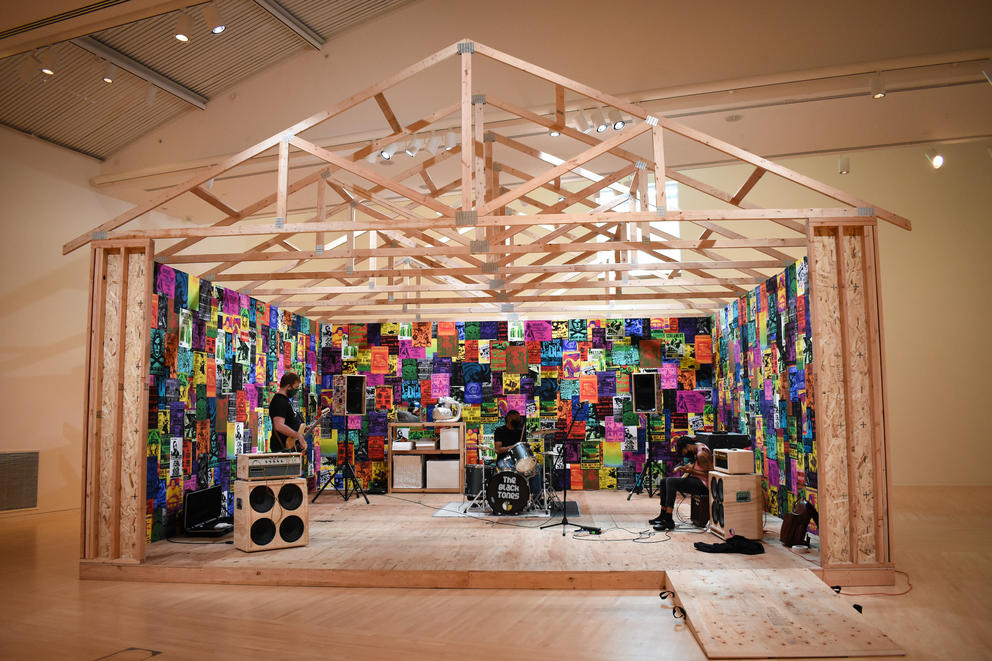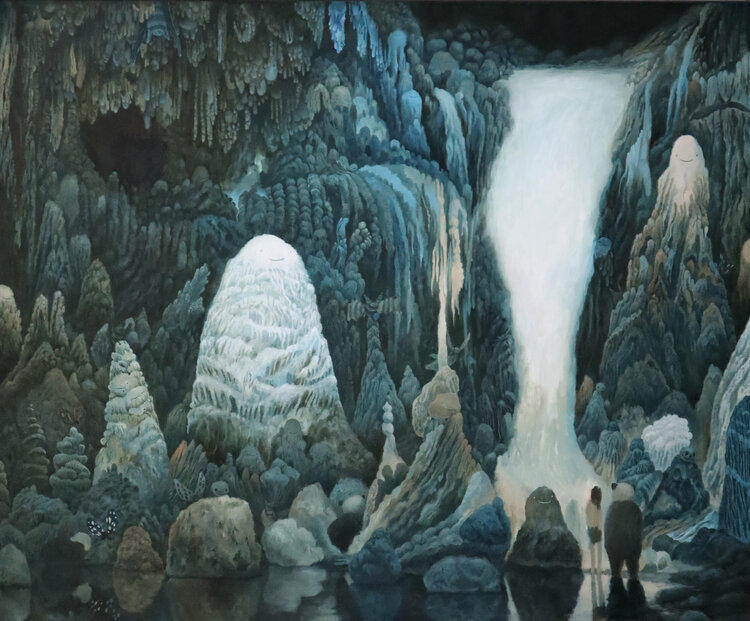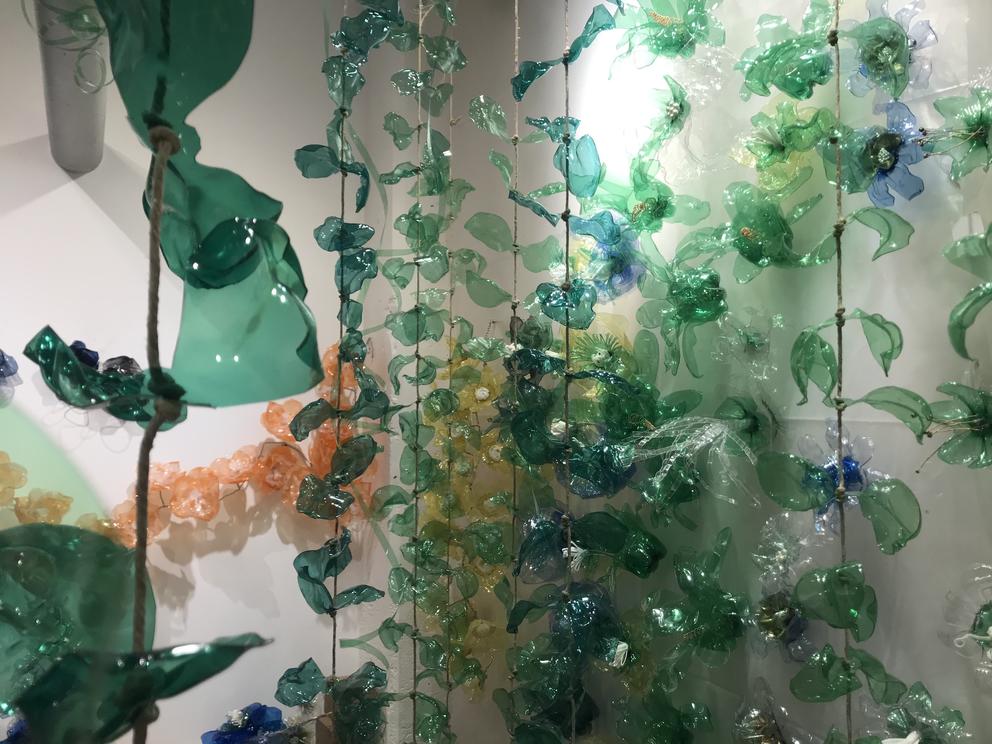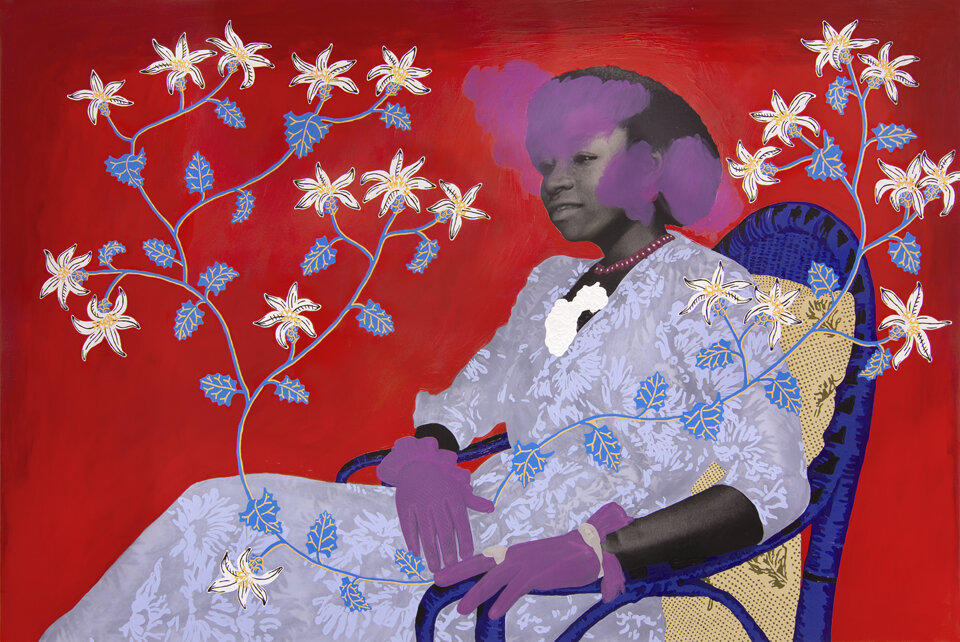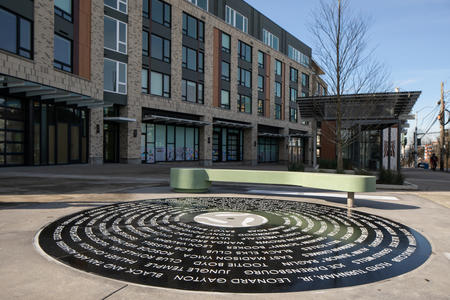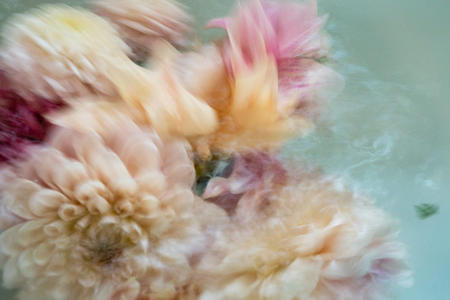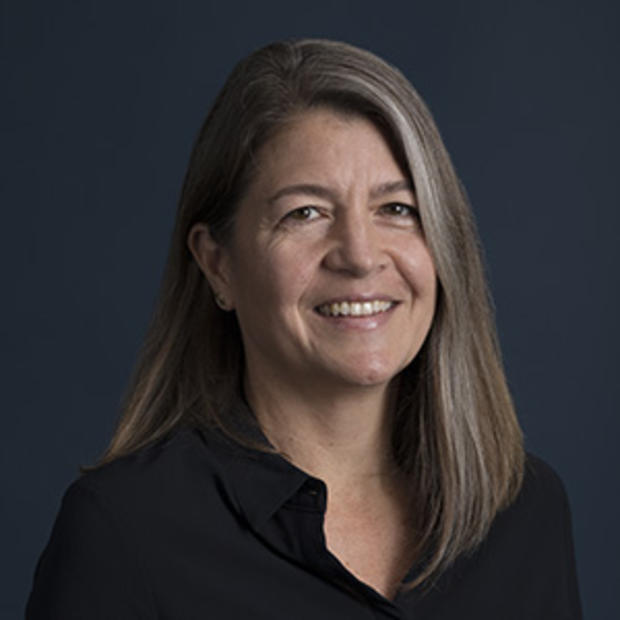And this week it happened when I was looking for details about Aquifer of the Hum (May 15-16), a new “sound meditation” by Philadelphia artist James Allister Sprang. Co-commissioned by Jacob Lawrence Gallery, On the Boards and Northwest Film Forum, the multichannel soundscape was inspired by the sustenance of underground water stores. Sprang says the voice and rhythm of the piece encourage deep listening, which he defines as “a radical action that allows us to slow down, turn inward and heal.”
ArtSEA: Notes on Northwest Culture is Crosscut’s weekly arts & culture newsletter.
I assumed it would be streaming digitally, as was the case with Sprang’s Aquifer of the Ducts (a sloshy and synthy soundscape, also on this weekend’s program). But reading the event listing, I saw this note: “The Merrill Theater at On the Boards can accommodate 10 groups of up to three individuals for each of the screenings.” I paused and read it again, scanning for the telltale words I’ve wedged into so much of my arts coverage over the past year: streaming, virtual, online, outdoors. Not finding any, I sensed a part of my pandemic mindset shift and break loose.
The return to in-person arts events has been happening slowly, carefully and with a lot of caveats: masks, distancing, significantly reduced audience numbers. But some arts administrators are starting to peer out from shuttered venues to say, “OK, a small group of you can come inside.” (Expect more to do so, with Gov. Jay Inslee's announcement today that all COVID restrictions will be lifted by June 30.)
This week, Crosscut reporter Margo Vansynghel collected some of the in-person performances happening over the next several weeks, including “garage band” rehearsals inside the Henry Art Gallery. That seems about right, given where we are now: practicing, inside our mental garages, for a someday-soon debut.
In the course of researching Sprang’s audio work, I encountered one of his earlier soundscapes, Aquifer of the Spirit (hear here). Listening via headphones feels like exploring a deep, dark, drippy cave. If you’ve been inside a real one, you’ll recognize the feeling — it might be a little spooky, yet something mysterious and elemental compels you further.
There’s a similar vibe in the new show at Roq La Rue, in which painter Adam Alaniz captures the massive stalagmites and stalactites of the historic Luray Caverns in Virginia. In Luray (May 14-June 5), Alaniz also secrets cartoony little creatures among the stony structures — subterranean dwellers that might get dismissed as figments of the imagination during a spelunking expedition.
You’ll find another kind of landscape at the National Nordic Museum, which is now showing Among Forests and Lakes: Landscape Masterpieces From the Finnish National Gallery (through Oct. 17). Spanning 150 years, these 50 paintings and prints reveal the vast natural beauty of Finland, from rolling hills to bone-chilling waters. Also included: short films by contemporary Sámi photographer and video artist Marja Helandar, who explores the overlaps in Finnish and Sámi culture.
And for an eco take on the environment, visit Method Gallery, where Havana-born, Seattle-based artist Hugo Moro has created a glistening florascape made entirely of single-use plastic castoffs collected in his home over the course of a year. In Garden of the Unconceived (visible via gallery windows and by appointment through June 12), Moro presents what first appears to be a shining Garden of Eden with green vines and bright blooms.
A closer look reveals the earth-unfriendly source materials. In his artist statement, Moro says he was inspired in part by a young man he remembers from his Cuban hometown, who “created fantastical forms that became part of the floats in the yearly carnaval festivities.” Moro notes while that artist used trash for lack of other materials, he’s doing so “as a tool to educate.”
The view from my own cave has shifted with spring — my pandemic workstation (aka dining room table) looks out on a rhododendron that’s bursting like a fuchsia firework. The lilac bush is just starting to lose its purple luster, but I’m eagerly awaiting the promise of pink peonies.
The Pioneer Square galleries are blooming with color as well. At Linda Hodges Gallery, Seattle artist Patti Bowman presents new encaustic paintings that capture the local built landscape (through May 29). Recognizable places — Burgermaster, Spic̒ ’N Span Cleaners, Cinerama — appear in a watery shade of technicolor that suggests both their staying power and eventual demise amid a swiftly changing urban landscape. Can you have a premonition of a memory?
Another feat of artistic time travel is taking place at J. Rinehart Gallery, where painter Daisy Patton is showing To Help You Remember Me (through May 22). The show’s title comes from a line written on the back of one of the black-and-white found photographs Patton uses as the foundation of each work. She gives unknown women from the past a contemporary presence by embellishing their portraits with painted flowers, vines and leaves. (“Color is part of the process of reenlivening,” she says in her artist talk.) The result is big, bold evocative works, whose prettiness is imbued with poignancy — of discarded family mementos, of true stories untold.
Finally, at Zinc Gallery, a group show whose title speaks for itself: Color Cure (through June 26) is a showcase of abstract works that emphasize the virtue of hue as “a remedy, a salve and celebration of the human spirit.” Among the six artists included are Seattle-based Barbara Robertson, whose blocky shapes vibrate with bright geometry, and Chicago-based Martina Nehrling, who plays with the “emotive slipperiness” and “controversial decorativeness” of color. It might be just the thing to celebrate the emergence from our caves.
Get the latest in local arts and culture
This weekly newsletter brings arts news and cultural events straight to your inbox.

